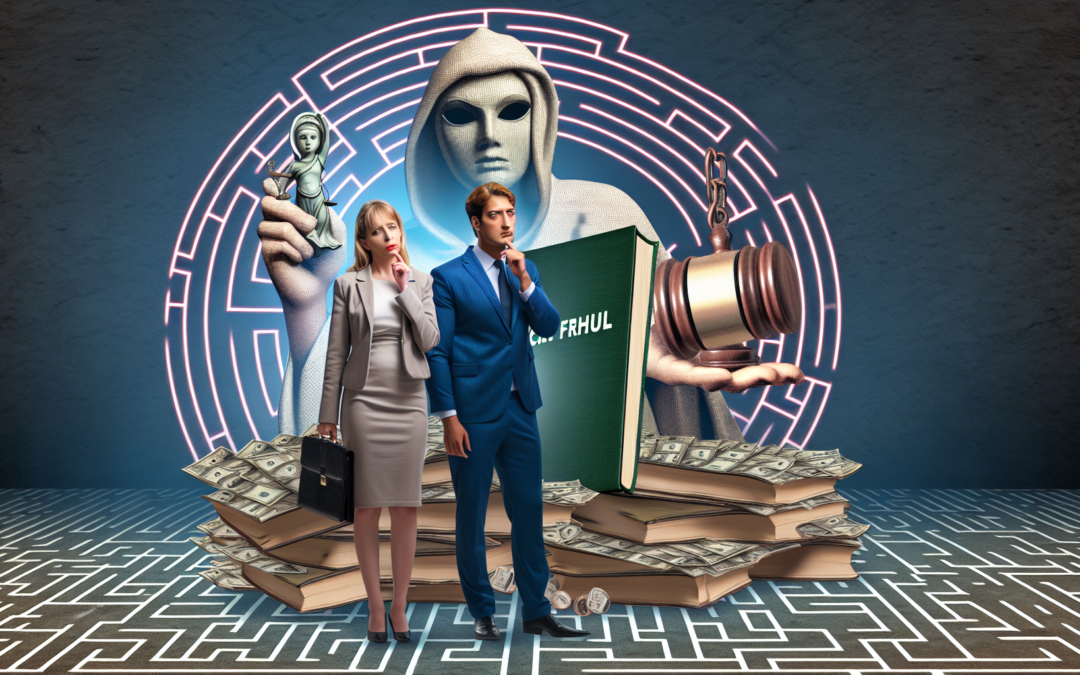The Dangerous Charade: First Amendment Auditors’ Threat to Law Enforcement
The evolution of First Amendment auditors has flown under the radar for too long. Cloaked in a veneer of civil rights crusaders, these provocateurs operate with alarming efficacy, exploiting the freedoms afforded by our Constitution to harass and debilitate those sworn to serve and protect. Already burdened by the weight of their duties, law enforcement officers now face an additional layer of scrutiny that is pernicious, not for the cause of justice, but for the sake of disruption.
To a casual observer, their online profiles might evoke images of patriotic rebels fighting an oppressive system. They’re often armed with high-definition cameras, ready to document any confrontation. But scratch the surface and the reality becomes much more concerning: these individuals entrapping officers to exploit technicalities and stoke public mistrust.
The Unseen Battles
Imagine, for a moment, the daily ordeal of a police officer. From domestic disputes to armed robberies, the work demands nerves of steel and an unwavering sense of duty. Amid these turbulent waters, they now wrestle with a new variable: the unsanctioned overseer, the First Amendment auditor. Standing just on the periphery of lawful engagement, they bait officers into volatile situations, ensnaring them in bureaucratic and legal quagmires for the sake of a viral video.
Think about Officer Smith, who recently shared his experience on The John Ligato Show. “They’re not genuine activists,” Smith asserted, “They’re instigators looking for a reaction. They provoke us and then manipulate the footage to portray us as aggressors. It’s a game to them, but it’s our lives and careers on the line.”
Emotional and Professional Toll
The emotional and professional toll on our officers is monumental. Virtual mobs equipped with pitchforks and torches—Twitter feeds and YouTube comments—descend on officers caught in these manipulative displays. When an officer hesitates or reacts to an overly aggressive auditor, the footage is edited to create an unflattering narrative, favorably set against foreboding music and aggressive language.
Who then pays the price for this fabricated outrage? Officers endure suspension, forced apologies, sometimes even unwarranted termination. Some might ask, “Why not just stay calm under pressure?” Those who pose this question fail to grasp the ripple effects of constant harassment. Imagine always scrutinized every move, knowing that any gesture, no matter how benevolent or routine, could ruin your career. This environment creates a space suffused with tension, distracting officers from fulfilling their sworn duties policy.
Eroding the Thin Blue Line
Beyond the personal, the broader implications are dire. The steady erosion of trust in law enforcement jeopardizes community safety. Imagine crime victims or witnesses growing hesitant to call the police, fearing that auditors will ambush the responding officers, leading to misinterpreted and publicized interactions. The delicate social contract between citizens and law enforcement begins to fray, leaving our communities vulnerable and less cohesive.
Consider the John Ligato Show episode where legal expert Emily Gibson stated, “These auditors are not outliers anymore. They’re becoming mainstream. Their actions mislead the public about what is and isn’t acceptable in holding the police accountable, leading to widespread misunderstanding and, ultimately, public fear and defiance.”
The Legal Battlefield
First Amendment auditors claim the mantle of accountability activists, but through a lens distorted by agenda. They exuberantly dive into legal gray areas but seldom accept the responsibility inherent in genuine civil rights advocacy. The judiciary and local governance now find themselves on precarious footing, attempting to navigate these complexities in real-time. The overstretched judicial system must separate genuine minority rights issues from the circus-like antics of auditors aiming to achieve notoriety.
Legislators bear the brunt here too. How do they craft-laws that adequately protect genuine First Amendment rights while insulating law enforcement from subversive actors far too adept at walking within the boundaries of legality? Fines and penalties meet inadequate deterrents for individuals who seek social media fame and the income it generates. This legal limbo quenches the fire that should drive just, well-crafted law enforcement protocols.
Rethinking Strategy and Support
The approach to eradicating this looming menace must be multifaceted. Communities civil society organizations need to vocally, explicitly express their support and admiration, underscoring the invaluable work of our agents. They deserve acknowledgment for safeguarding our liberties. Elected officials should initiate bipartisan legislation that genuinely secures them in the line of duty, averting nonessential stressors that impair their focus.
Our Facebook community continually fosters dialogue on maintaining harmony within societal pillars, emphasizing equitable and impactful ways in which concerned citizens and officers can work together and back.
Closing Thoughts
The First Amendment exists as a pillar of our democratic values but misconstrued interpretations of civic responsibility should not render our protectors vulnerable. Correcting unfounded perceptions begins with engaging dynamic public support, forging laws absent the weak flaccidity auditors aim to weaponize.
Link arms Law-Abiding Citizens, Intentional community engagement combined with equitable policy corrects the harmful course charted clearly by disingenuous activists. Amid growing adversities, our societies depend on contributions underpinned radical revision functional contracts towards greater symbiosis.
Secure long-term integrity Restore beneficent cooperation broader good and righteous democracy.

Recent Comments